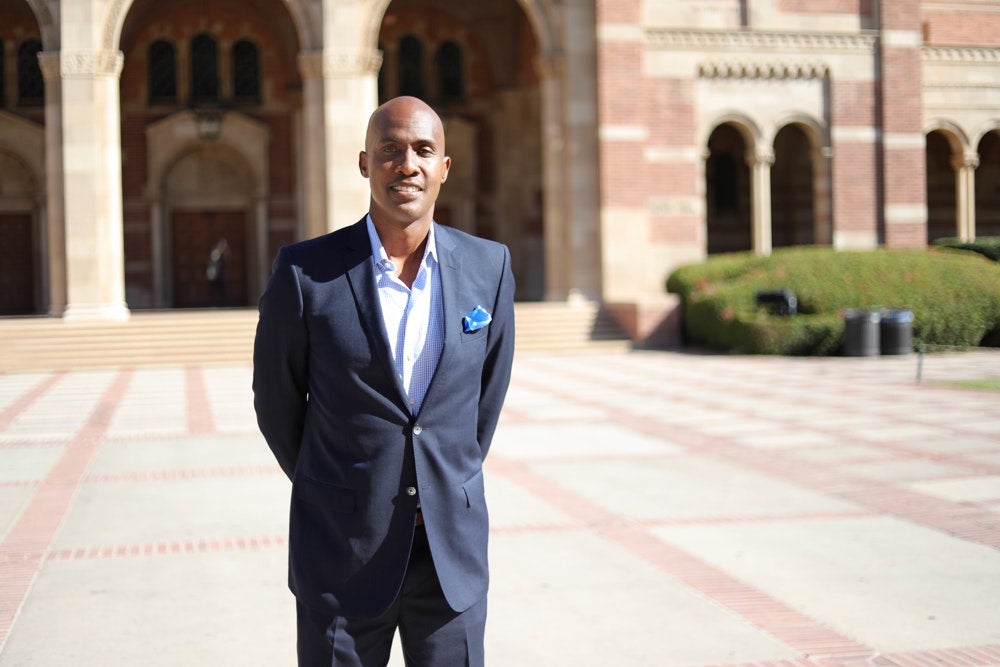UCLA Professor of Education Tyrone Howard was recently interviewed by KABC-TV on the importance of Black History Month in the wake of heightened awareness of racial inequity and injustice.
Howard, who serves as faculty director of the Center for the Transformation of Schools and director of the UCLA Pritzker Center for the Strengthening of Children and Families, noted that the idea of Black History Month is still relevant today, even with growing awareness of racial injustice.
“I think we have to remember that Black history is not just about looking at the past – it’s about looking at the present,” said Professor Howard. “And I ask people to look around at their environments and to look at what is the state and condition of Black people. Look at our workplace and do we see Black people being hired, promoted, given the same opportunities as others. Ask some hard questions about why when we drive around Los Angeles, there’s a disproportionate number of people who are experiencing homelessness who happen to be Black. … Why a disproportionate number of those folks who are infected with the COVID-19 virus… happen to be Black.”
Howard, who founded the Black Male Institute at UCLA, stated that while Black Americans are becoming more successful, there is much work left to be done to provide the same access and opportunity.
“It’s a tale of two different realities,” he said. “There are more Black Americans who are going to college, more Black Americans who are in positions of leadership in our country. But at the same time, the poverty rates for Blacks in this country are among the highest… The number of Black people who are incarcerated in this country are disproportionately high. The number of Black people in terms of their overall financial wealth is significantly lower than it is compared to their white counterparts.
“We have to come to grips with the fact that when you look at the condition of Black people in this country, there are a small percentage of Black Americans who are doing quite well, but there are far too many who are still fighting to have a piece of the American dream. And Black History Month is.. that reckoning and that time for us to ask ourselves a fundamental question about how do we open up that dream … so that all African Americans have those same kinds of opportunities.
“The quest for equality. The quest for justice. The quest for civil rights. Those are all the Black American story. We need to know, study, and understand that history, because as I said, Black history is U.S. history; U.S. history is Black history. We have to observe, learn, study and understand that our quest for racial justice is far from over and everybody can play a role, not just Black Americans.”
Howard was interviewed by the San Francisco Chronicle on the efforts to change the names of 44 of the city’s schools that currently honor slave owners and colonizers throughout history. Professor Howard noted that while political support exists for symbolic and real change around racial justice in wake of last year’s protests, these discussions are taking place amid the COVID-19 pandemic. He asserted that dealing with both the pandemic and removing memorials to a racist history should be schools’ top priority.
“The optics aren’t good when you’ve got learning loss and kids need to be back in schools,” Howard asserted in the Chronicle. “The COVID concerns need to be prioritized and it should not mean the other issues can’t happen.”
Click here to read Professor Howard’s comments in the San Francisco Chronicle.
To view Professor Howard’s interview on KABC-TV, visit this link.
